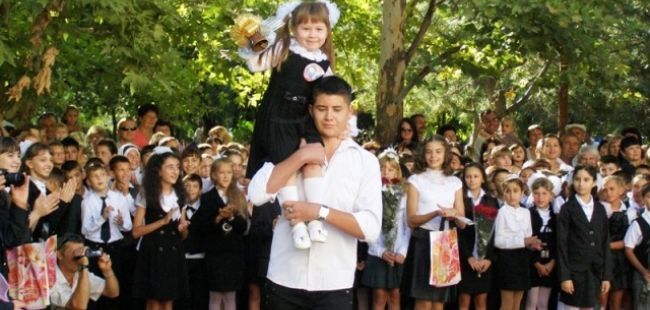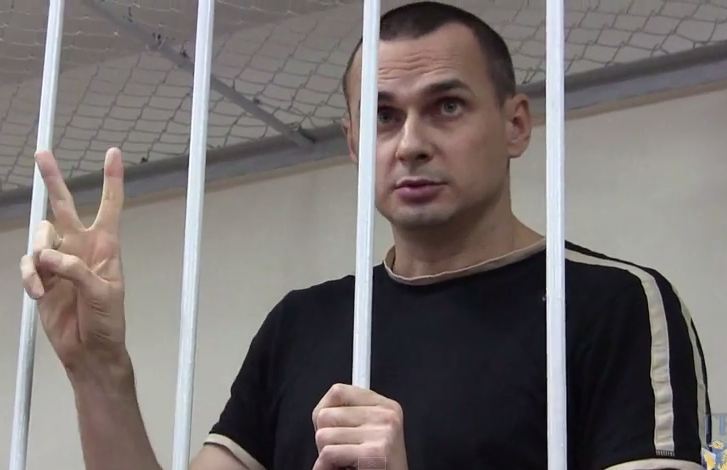The proposal that Czech President Milos Zeman made to Russia about the need to "pay" Ukraine for the " surrender " of Crimea may appear to be simply an extravagant ploy that can be ignored. This would be true if only this statement had not been made from PACE's rostrum and had not been so calmly greeted by many deputies who did not even attempt to challenge the Czech president.
Ukrainian representative Vladyslav Holub, who was not able to question Zeman, later wrote in social media that he wanted to draw parallels between the Sudetenland, annexed by Hitler, and the Crimea annexed by Putin. But the point is that prewar Czechoslovakia was forced to give up the Sudetenland for the same reasons that Zeman used to frighten his listeners during his speech at the Parliamentary Assembly of the Council of Europe (PACE) -- the need to avoid a major European war.
When Chamberlain and Daladier reached an agreement with Hitler, this fear of war was common -- people had not yet forgotten the horrors of World War I. This is why it was important for Great Britain and France not only to satisfy the Fuhrer's appetites but also to preserve the formal adherence to international law -- in other words, to convince Czechoslovakia to recognize the annexation of the Sudetenland. Now history is being repeated.
The speech by Milos Zeman demonstrates that among the representatives of the Western elite there are not two but at least three ideas about Crimea's future. There are those who are convinced that the Crimean issue is "closed," that Crimea has become a "part" of Russia's territory and that it is possible -- even without agreeing with this fact from the point of view of international law -- to avoid returning to this topic in the foreseeable future.
There are those who are convinced that Crimea is a part of Ukraine and that the main task of the West is to achieve respect for international law and to restore Ukraine's sovereignty over the annexed peninsula.
But there are also others, like Zeman, who want Crimea to remain a "part" of Russian territory and for the law to be "upheld." Supposedly "upheld." In other words, for Ukraine itself to accept the fact of the annexation and the idea that Crimea is "Russian" and not Ukrainian territory. And this agreement can be exchanged for anything -- for money, for energy, for the end of the Donbas war and complete restoration of territorial integrity on the mainland -- in a word, for anything at all as long as the "law is restored."
A dangerous trend
This is why Zeman's position is not simply an extravagant ploy; it is a trend. Zeman has been called a European Zhirinovsky -- probably because he says what many are thinking but are too embarrassed to say. And I have no doubt that over time the pressure on Ukraine to force it to sit at the negotiating table and acknowledge the fact of the "irreversibility of the seizure" of Crimea will only intensify.
What is the way out of this situation? In reality, there are several options for the development of events. The first one is for everyone to understand that it is impossible to postpone the Crimean issue indefinitely, to think that Crimea can be dealt with after the Donbas. Because, paradoxical as it may seem, in this case, the resolution of the Donbas issue may permanently close the Crimean issue. This is why it is necessary to speak about Crimea today and now.
And not only about the return of the territory, but also about the rights of the indigenous people of Crimea, about the repressions suffered by Crimean Tatars and pro-Ukrainian activists of other nationalities. This is what needs to brought to the attention of those like Zeman. If Crimea is "simply" Russia, then why has a real occupational repressive regime been established there?
Crimea should become an important part of the political and legal daily agenda. It needs to be discussed with society -- because if we ourselves are not interested in it then why do we need it? Wouldn't it be easier really to give up the annexed territory?
One way or another, Zeman's speech reflects a tendency in the politics of the West. The West is ready to assist Ukraine in returning the Donbas but, so far, it is not prepared to deal with Crimea. This is because the promise to retain the toothless personal sanctions imposed after the annexation reveals the readiness to forget rather than the desire to restore.
This is precisely why it is important not to pretend that there was no speech by Zeman and that he is simply a pro-Russian politician who can be ignored. It is important to realize that Zeman is not denying the annexation, as do many other friends of the Kremlin. He acknowledges the annexation. But he uses it to reach conclusions that are opposite of Ukraine's. And this is very dangerous.



